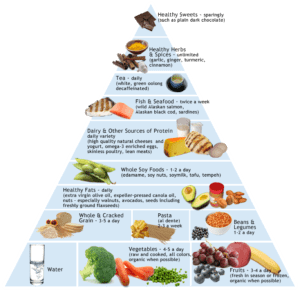Top 5 Anti-inflammatory Foods + Anti Inflammatory Diet
Chronic inflammation can be considered to be the root cause of many diseases. But what does inflammation really mean? It is an immune response our body initiates to protect and heal itself. This sound like a good thing, right? Well, there are two types of inflammation – acute and chronic. When the acute type occurs, the body is healing itself through swelling. But when there is a prolonged irritant, the immune/inflammation cascade can be overloaded and our own immune systems can damage healthy tissue- leading to chronic disease.
Just to name a few:
- depression
- arthritis
- heart disease
- lupus
- asthma
- eczema
- psoriasis
- cancers
- inflammatory bowel disease
- hashimoto’s thyroiditis
- chronic fatigue
- dementia
- obesity
Mainstream medicine typically treats chronic inflammation by prescribing anti-inflammatories and steroids to block immune reactions in the body. At CentreSpringMD, we try to get to the root of the issue and focus on diet as a driving force for chronic inflammation and a way to help reverse it. There is an overwhelming amount of recent research that ties diet to elevations in C-reactive protein and erythrocyte sedimentation rate, which are two inflammation lab markers. In attempt to healing this inflammation, the anti-inflammatory diet was created.
The anti-inflammatory diet is switching around the food pyramid by reducing the amount of inflammatory foods we take in and adding healing foods. Dr. Andrew Weil depicts the anti-inflammatory below.
The diet incorporates:
- 40-50% healthy carbohydrates that are low-glycemic, less refined, and less-processed food
- 30% good fats and unsaturated fats
- 20% protein sourcing from mostly vegetable protein including beans and fish protein
A rule of thumb is to keep the most inflammatory foods limited to one serving a day- dairy, gluten, soy, peanuts, and corn. These foods generally cause the most immune response. However, knowing your personal food allergies/sensitivities would be beneficial so you are not adding more fuel to the fire by eating them too much. CentreSpringMD offers the ALCAT food sensitivity testing; a blood test that checks what foods could be causing you an immune/inflammation response.
In addition to avoiding or limiting the most inflammatory foods the anti-inflammatory diet includes healing foods. My top five anti-inflammatory foods are:
1. Cruciferous veggies (broccoli with stem, cauliflower, spinach, kale, brussels sprouts, arugula, bok choy, etc.)
5-6 servings a week
2. Coconut oil or extra virgin olive oil
1-2 teaspoons cooked with food or drizzled over foods
3. Turmeric
You can add 1-2 teaspoons in your cooked veggies, pasta, or soup. The newest trend is to drink turmeric latte or goldenmilk!
4. Blueberries
½ cup daily
5. Bone broth
1 cup daily
I have personally seen patient’s C-reactive protein and erythrocyte sedimentation rates go back to normal after starting this diet and it amazes me how much food can be our medicine and a simple, cost-effective healing option. Let’s reverse disease with the anti-inflammatory diet!


